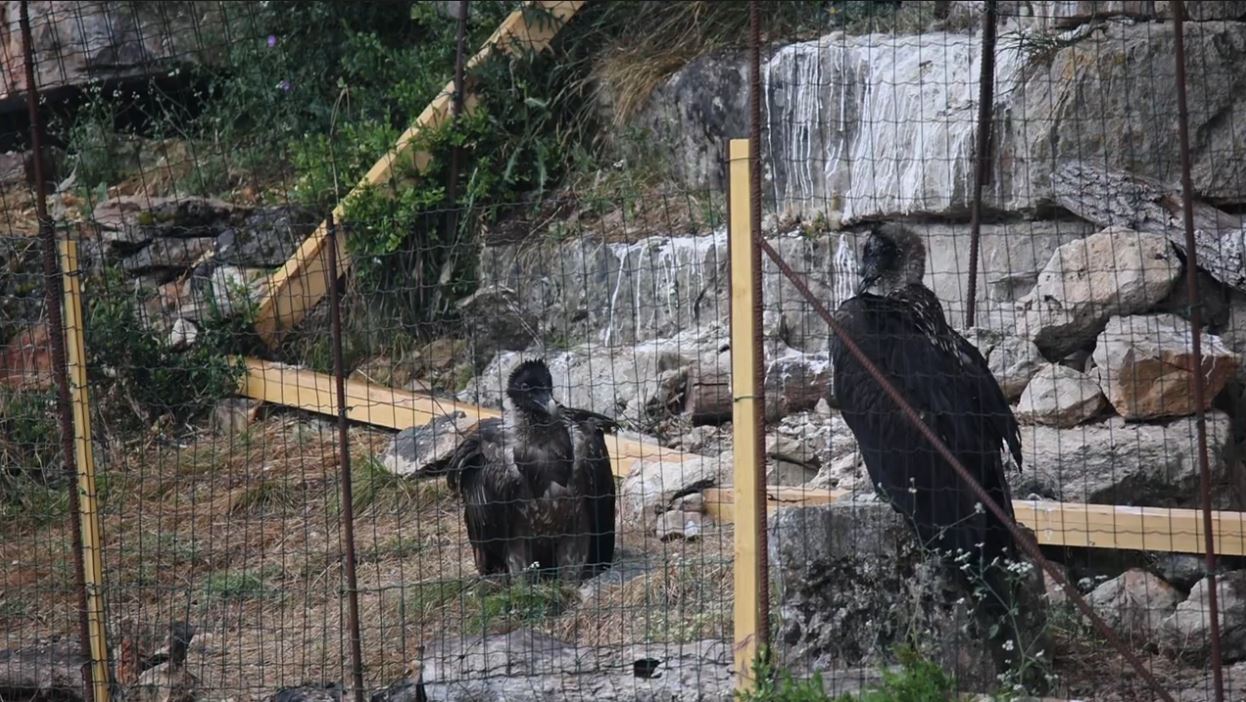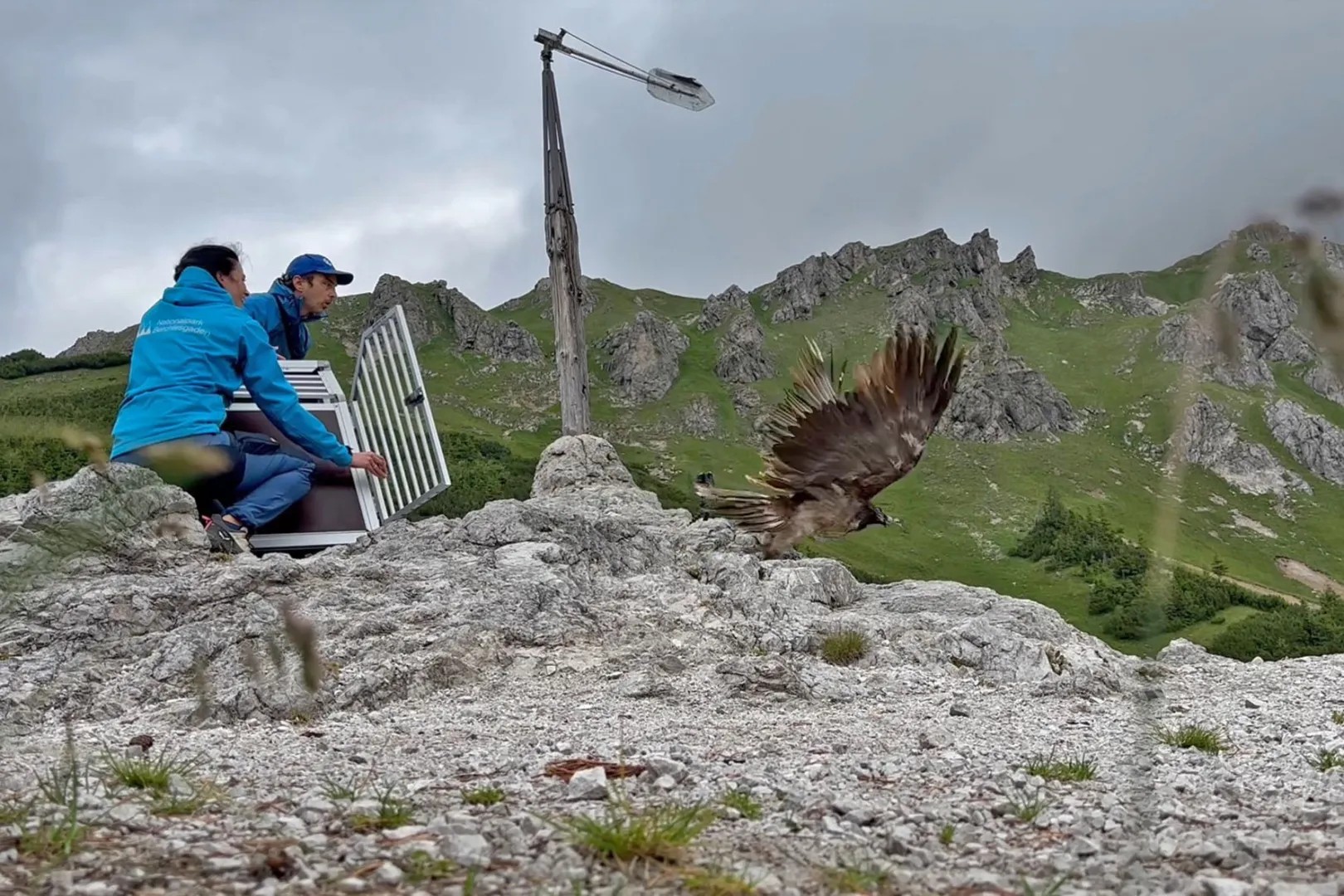
With news of the fledging of Finja from her hacking cave in the Swiss Alps, the highly successful release and fledging season of 2018 for our reintroduced bearded vultures has now come to an end.
Finja
Together with Fredueli, Finja was released into a hacking nest on the 17th of June by the Stiftung Pro Bartgeier at the Swiss Federal Wildlife Refuge Huetstock near Melchsee-Frutt. Both birds were from the Bearded Vulture Captive Breeding Network we coordinate. At eight days younger than Fredueli, Finja was often dominated by him, who chased her around the nest, but Finja coped well with the situation choosing another site to sit or feed. Since Fredueli fled back in July, Finja has had the nest to herself.
Usually, females fledge later than males, as they are slightly heavier, that might be the reason that it takes a bit more time for them. Finja fledged on the 25 July at an age of 125 days old, making her the last of the 13 birds that were released into the wild this year.
Bearded vulture reintroduction and release programmes
Once a regular sight around the mountains of southern Europe and the Alps, the population of bearded vultures drastically declined over the course of the 20th Century, disappearing from many countries across Europe due to direct human activity such as persecution, poisoning, changes in livestock practices and habitat loss.
Following the huge success of the Alpine Bearded Vulture Reintroduction we began 30 years ago, there have been many reintroduction programmes to help restore the species back to most of its former range in Europe. Even though the number of breeding pairs is growing in the Alps we continue to release bearded vultures into the region to improve the genetic diversity of the population
As part of the GypConnect conservation project, funded by the European Union’s LIFE programme, we also release bearded vultures into the French Massif Central, as well as in the western Pre-Alps to help connect the populations of the species in the Alps and the Pyrenees.
For 20 years the Andalucian reintroduction programme in Spain has seen the species make a comeback since disappearing from the region in the 80s. Two breeding pairs have successfully fledged young there
This year we also initiated a new reintroduction project developed by the regional government of of Valencia in Spain’s Maestrazgo region, that aims to connect the Andalucian population to the population in the Pyrenees.
The 2018 release season

Finja is the last of the birds from the 2018 release season to flegde. She follows the three birds released in Baronnies within the GypConnect project (Clapas, Drumana and Simay), the two birds released in the National Park Hohe Tauern (Kasimir and Caeli), the two released in the Maestrazgo release area (Alos and Amic) and finally the four birds released in Andalusia (Iruela, Biosfera, Lápiz, and Suerte Somer). These birds all fledged earlier as they all hatched earlier in the 2018 breeding season.
All of the birds are doing fine and are still closely monitored by the respective release teams.
Follow Finja
Over the next couple of weeks Finja will explore bigger and bigger areas, flying longer time and longer distances but until Finja is fully independent, it will take another 3-4 weeks, staff will stay up in the mountains and also provide food for the her. You can follow Finja’s progress online via a webcam set-up by the Stiftung Pro Bartgeier.
We wish Finja and all the birds who fledged over this season all the very best luck.




